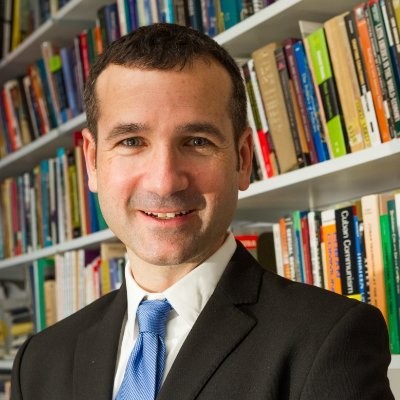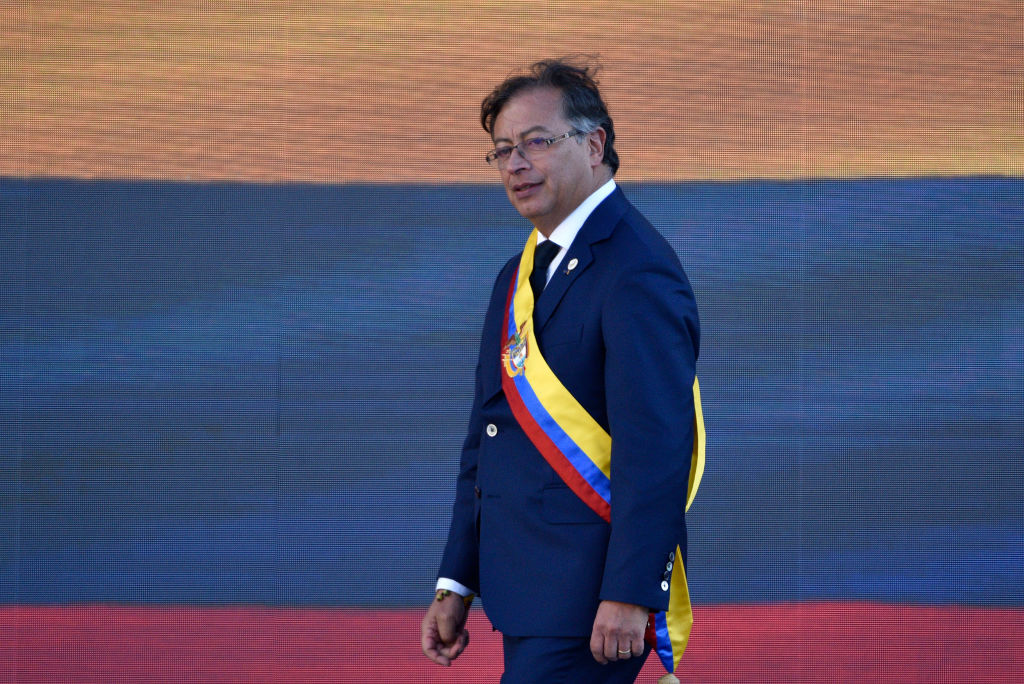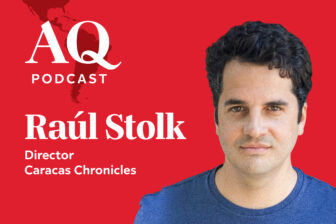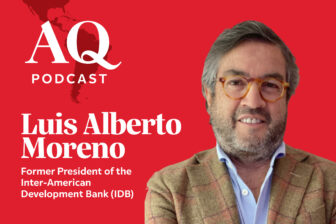No Latin American country is truly free of the risk of democratic backsliding. Since 2000, the region has seen numerous cases of democracies that gradually acquire semi-authoritarian features. Colombia in fact already had an episode of backsliding under President Álvaro Uribe. A new outbreak of backsliding, this time from the left, is not inconceivable for any country, including Colombia.
But if the risks are real in Colombia, they do not seem imminent—with one caveat. Energy institutions, despite their track record of strength, may very well represent the most worrisome institutional weak point in Colombia’s democracy.
Democratic backsliding occurs through institutional erosion: presidents deliberately undermine the autonomy of institutions to make them more partisan and, in the process, less professional. When this erosion happens, the rule of law gets replaced by the president’s wishes.
While the starting strength of any institution is no predictor of its capacity to resist presidential assaults, we can nonetheless evaluate which institutions in any country appear more vulnerable. In Colombia, the Congress and the courts show some vulnerability, but nothing compared to that of some of economic institutions.
Reassuring signs in Congress
In determining whether a legislature has the capacity to resist domination by a president, three factors matter most: the degree to which the ruling party controls the legislature, the bargaining strength of non-incumbent parties, and the ruling party’s propensity to become a cult movement.
Regarding ruling party control of Congress, President Gustavo Petro is at a disadvantage. He did not emerge from the elections as the leader of a what one could call a hegemonic party. He barely won the majority of the vote – 50.47% on the second round. He did not obtain an outright majority in either chamber of congress and has had to negotiate coalitions to ensure support for his agenda. This is what happened in Colombia under the previous two presidents, Juan Manuel Santos and Iván Duque, both of whom had little option than to appoint cabinet members from other parties and give up some policies in order to preserve a working relationship with non-incumbent parties. When a ruling party needs coalitions in Congress, allied parties gain bargaining leverage. They can use that leverage to prevent democratic backsliding.
Perhaps the main difference between Petro and his two predecessors has to do with the relative strength of non-incumbent parties. Here, the odds favor Petro. Many political scientists suspect that all non-incumbent parties in Colombia emerged severely wounded from the 2022 presidential election. None obtained more seats than Petro’s party. This weakness (in seats and morale) across parties means that the bargaining power of allied parties may be weaker than in the past. This increases the risk of executive aggrandizement.
But by far the most important risk in Colombia’s Congress is the ruling party turning into a political cult of personality. There were signs during the campaign that this is likely. A large faction within Petro’s Pacto Histórico party feels very comfortable with Petro’s authoritarian streaks. Most Petro supporters to this day deny that Petro has a track record of autocratic impulses. The most famous case was his garbage collection fiasco as Bogotá’s mayor. Petro attempted to nationalize this service using autocratic methods. Many of Petro’s supporters still don’t see it this way, claiming instead that Petro was actually being profoundly democratic because he was actually taking privileges away from economic elites. For many of his followers, Petro’s unilateralism is not a flaw but a strength. They could become radicalized if Petro begins to clash with politicians from the opposition. When ruling parties become radicalized, the chances of democratic backsliding increase.
The legal side
Most presidents who erode democracy do so by striking at the impartiality of the courts. They turn the legal system into a vehicle for autocratic legalism: protecting the presidency from legal trouble while creating legal trouble for the opposition. A common tactic is to focus on the hiring, firing and promotion of judges.
If Petro adheres to existing nomination rules and also respects the constitutional mandate against presidential re-election, it will be hard for him to erode the autonomy of Colombia’s justice system.
The resilience of Colombia’s top courts stems from the fact that they are not a unified body but rather comprised of three separate units (The Constitutional Court, the Supreme Court, and the Council of State). A fourth unit (The Superior Council of Judicature) is in charge of oversight of the judicial branch. These units have each different organization structures (salas) and nomination procedures. For many salas, the president does not have full nomination powers.
It might be possible for a president to turn one of these organs into a more partisan body, following normal nomination rules. However, in one term there isn’t enough time for a president to re-staff them fully. There won’t be that many vacancies in four years. So as long as Petro respects existing rules and term limits, the Court system appears safe.
The oil industry: a slippery slope?
More than Congress or the courts, the strongest risk lies in two other institutions, each having to do with the economy more than with traditional political checks and balances: Ecopetrol, the national oil company, and the Agencia Nacional de Hidrocarburos (ANH), the independent agency that regulates both Ecopetrol and the energy sector.
Since Uribe’s time, Ecopetrol and the ANH have managed to remain professional and independent of the executive branch. This is one reason Colombia has been so successful in developing its hydrocarbon sector and becoming an oil-exporting country. Presidents just didn’t interfere too much with these institutions to manipulate oil revenues for their own political advantage.
But previous leaders respected this autonomy because of norm adherence and ideological agreement with the mission of these institutions more than because their hands were strictly tied. Petro’s ideological and policy inclinations, on the other hand, might make him less disposed to protect the autonomy of the oil sector. He vigorously supports ending the sector’s dominance in Colombia’s economy. This commitment to decarbonization, however praiseworthy from a developmental point of view, could provide the ideological justification for a major institutional overhaul of Ecopetrol and ANH.
Both legally and politically, Petro would enjoy far more discretion in manipulating the oil industry than meddling with Congress or the Courts. Tinkering with the staffing and nomination rules of these institutions is unlikely to provoke strong reactions from the political establishment. Some técnicos will no doubt sound the alarm, but Petro might dismiss them as discredited neoliberals. In the end, the political system and the opposition may simply let it pass because in Colombia, few people recognize how valuable the independence of these institutions has been to Colombia’s macroeconomic performance.
If Petro were to succeed in eroding the autonomy of Ecopetrol and the ANH, the executive branch would concentrate far more economic power than Uribe ever had. This is where I see the biggest risk for Colombia’s democracy.
One could argue that one risk-mitigating factor in the above scenario is the reduced size of Colombia’s oil sector. And Petro actually wants to make it even smaller. Capturing the country’s energy institutions in this context will not confer on the president similar powers to Hugo Chávez in Venezuela, Rafael Correa in Ecuador, and Evo Morales in Bolivia, where oil and natural gas sectors were massive.
Perhaps. But Petro needs money. He may decide that de-carbonization can wait. The result could be a scenario where the president uses the ideology of de-carbonization to give himself more partisan powers in the energy sector while in the medium-term doing nothing to minimize fossil-dependence so as to maximize access to oil-dollars.
This scenario would give Petro far more institutional power than any of his predecessors ever enjoyed. In capital-scarce and regulation-heavy Latin America, a little discretionary money in the hands of a president can go a long way to silence opponents.
—
Corrales is the Dwight W. Morrow 1895 professor of political science at Amherst College and a member of AQ’s editorial board







